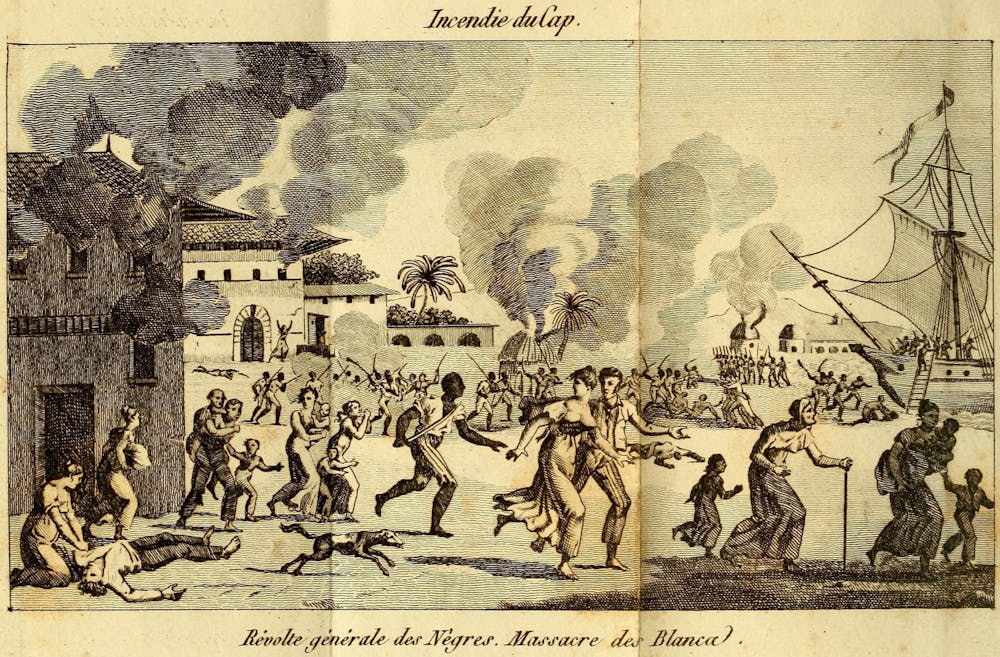Rachel Waxman, a Hopkins PhD candidate in history, described one of the first major consumer boycotts in history in a talk she gave at Bird in Hand on Monday.
The boycott French consumers launched against sugar in the wake of skyrocketing prices due to the Haitian Revolution, she argued, led them to discover for the first time their collective power, something she said modern consumers could learn from.
The 1791 Haitian Revolution, she said, erupted two years into the French Revolution, which centered around ideas of freedom, citizenship and individuality.
These ideas then made their way to French colony of St. Domingue on the island of Hispaniola and influenced the outbreak of the revolt, which would go on to become the only successful slave revolt in modern history.
As the conflict on the island became progressively more serious, sugar production on the island — formerly the most productive of all the European sugar islands — ground to a halt, and exports to mainland France became rare.
In Paris, the resulting shortage caused the price of sugar to climb dramatically.
Urban consumers, who had become accustomed to enjoying sugar on a daily basis, grew very upset.
They initially blamed both the sugar merchants themselves, as well as the newly established provisional government.
The provisional government could not effectively respond, Waxman explained, because the kinds of interventions it could have undertaken to increase the supply of sugar were too heavily associated with the deposed government.
Had they attempted them, their newly installed regime may have lost crucial legitimacy.
“Especially in the beginning of the Revolution, people were reacting to these restrictions on trade goods that were in place during the Ancien Régime,” Waxman said. “So there’s this impulse to get rid of tariffs and restrictions and really protect the freedom of trade... so the government does not want to fix prices.”
Eventually the riots calmed down somewhat.They were replaced, however, by a widespread boycott.
The boycott was motivated by two factors, one economic and one symbolic.
“One reason was because [consumers] thought that by reducing the sales of sugar, they could lower the price. The other was this sense that they were getting revenge on the administrators,” Waxman said.
The administrators, however, were content so long as public order was maintained. From this perspective, a boycott was far preferable to street riots.
The administrators did produce a statement that they would consider taking legal action, but without any real intention of ever doing so, Waxman explained.
“About half of France’s sugar was being exported to the rest of Europe as a cash crop; it was making tons of money for France, so they didn’t want to stop selling it abroad,” she said.
To conclude, Waxman argued that this sugar boycott should be viewed as significant because it was the first time that consumers considered the leverage and power they have in trade.
Graduate student Thomas Keegan said that an aspect of the presentation he found interesting was the discussion of how consumer behaviors, and so the objects of boycotts, have changed over time.
“You think through the ways of which ideals of consumers have morphed through the ages. I think the question is about emotions,“ Keegan said. “It’s really hard to not eat sugar; it’s very addictive. If you like to travel but care about climate change, will you stop flying in aircraft?”
Graduate student Autumn Vowles said she found the talk thought-provoking.
“In talking about boycotts today, a lot of times, boycotts are used to enforce our moral beliefs, and consumers band together in order to make some sort of statement and put pressure on a company. I think it was essential to have this historical perspective,” Vowles said.

















